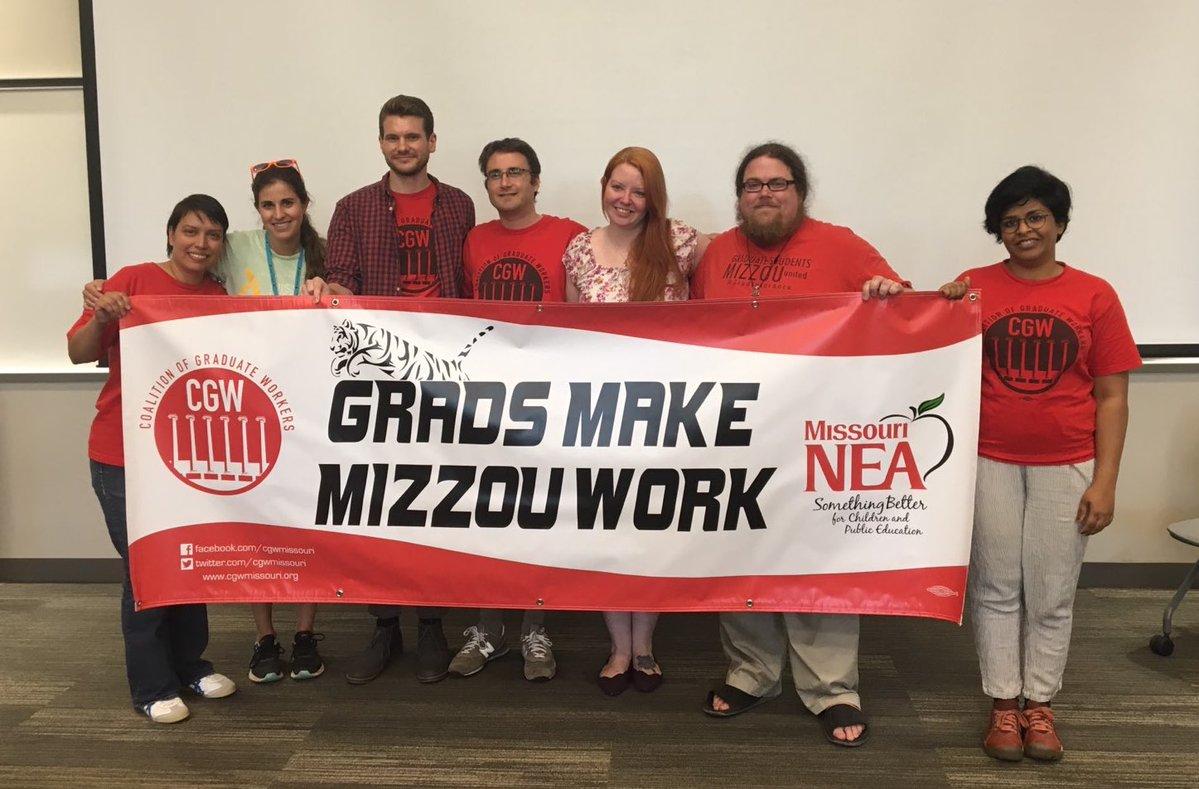The UM Board of Curators will appeal a June 21 decision stating they must recognize the Coalition of Graduate Workers as the collective bargaining representative for MU graduate workers, according to UM System President Mun Choi.
The decision, read by 13th District Circuit Court Judge Jeff Harris, brought an end to the first part of a two-year-long legal battle, which centered around the parties’ interpretation of the word “employee” in the 1945 Missouri Constitution, according to Harris’ decision.
Nicholas Brothers, the CGW’s outreach officer, said the dispute over the workers’ collective bargaining rights began in 2015, when the university announced it would no longer provide subsidized health care to graduate workers.
“It is abundantly clear that the graduate workers are employees,” Harris said in his decision. “They work under the authority and control of the faculty members who supervise their work and evaluate their performance on the behalf of the university.”
The university declined to comment directly because of the case’s status as pending litigation, but stated their intent to appeal at a June 22 press conference, according to The Columbia Missourian.
“We appreciate that the court has made a decision in this regard, but it is our intent to appeal this decision,” Choi said at the June 22 press conference.
Brothers said the coalition was frustrated with the board’s decision to appeal, as they believed the circuit court ruling was conclusive.
“It’s just a part of our legal system and the Board of Curators obviously has a perspective on the matter that we disagree with,” Brothers said. “We’re ready for a long haul. We’re in this until the last legal document is written.”
At an April 20 hearing, Michael Kaemmerer, legal counsel for the Board of Curators, argued that the workers’ primary status as students excluded them from being defined as employees.
“It all ties into the higher education pursuit,” Kaemmerer said. “They’re students. They’re here getting a degree, that’s why they’re here. That to us is the key distinction.”
In response, Harris said in his decision that graduate workers’ pay and the teaching expectations it brings creates a relationship external from educational goals of a graduate student.
“The Restatement (of Employment Law) specifically addresses the employment status of graduate workers,” Harris said in his decision. “‘Compensation encourages the students to do the work for more than educational benefits and thereby establishes an employment as well as an educational relationship.’”
Brothers said disagreements over the status of graduate students as employees contributes to the tense relations between workers and the university.
“Happier grad students are going to be better workers when we are not in precarious situations,” Brothers said. “We’re overworked, we’ve been underpaid and we want to make sure that our education and our work are valued. And if one isn’t, the other probably isn’t as well.“
Brothers said the current agreements being signed between graduate workers and the university are harmful to both parties.
“Union recognition means bargaining on a level playing field, and that’s what we’re asking for,” Brothers said. “Individual graduate students sometimes signing non-negotiable contracts doesn’t help anyone, it doesn’t even help the university.“
Graduate Professional Council President Alek Willsey, who oversees the university’s official graduate and professional level government, said he opposes any further legal efforts by the Board.
“The Graduate Professional Council encourages the University of Missouri to accept the ruling of the circuit court and develop a formal relationship with CGW in order to ensure that the interests of graduate-professional student employees are appropriately protected,” Willsey said. “Appealing the circuit court’s decision, which amounts to continuing a court case which is already needless and costly, is a poor use of university resources.”
Brothers said CGW’s lawyers don’t have an exact timetable on the length of an appeals process. The appeal, once filed, will be handled by the Western District of the Missouri Court of Appeals, which is based in Kansas City.
_Edited by Caitlyn Rosen | [email protected]_








